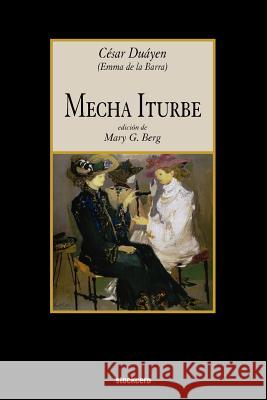Mecha Iturbe » książka
Mecha Iturbe
ISBN-13: 9781934768006 / Hiszpański / Miękka / 2007 / 268 str.
Mecha Iturbe, published in Buenos Aires in 1906, is the most ambitious and longest of Cesar Duayen's five novels about the transformation of Argentina into a contemporary state in the early part of the 20th century. Cesar Duayen, pseudonym of Emma de la Barra (1861-1947), was the author of Argentina's best seller, Stella of 1905, and Mecha Iturbe, too, was greeted with great excitement. A record number of copies were printed, and the author was paid an unprecedented amount. There were many editions, but none has been available in recent years. In Mecha Iturbe, elements of national reform and modernization are portrayed and debated in an even more complicated failed love story, also set in both Buenos Aires (drawing rooms, congress, the opera, a labor union rally) and in a utopian factory town. The central character, Mecha Iturbe, has just come from Europe so Argentina must be explained to her, and shown to her. But Mecha, from whose point of view everything is seen, is a very traditional Argentine-born woman who resists modernization --she likes being an upper class, affluent, Catholic conservative, she likes organizing charity balls and buying fashionable new clothes-- and who has the misfortune to fall in love with a reform-minded, idealistic medical doctor who expects her to want to change and improve Argentina. The other major woman character is a surgeon, who eventually marries an up and coming politician and labor leader, but continues to practice medicine. With a prologue and notes by Mary G. Berg, this novel would be a discussion-provoking addition to any class on Argentine, Southern Cone or Latin American 20th century history, women's studies, or literature











